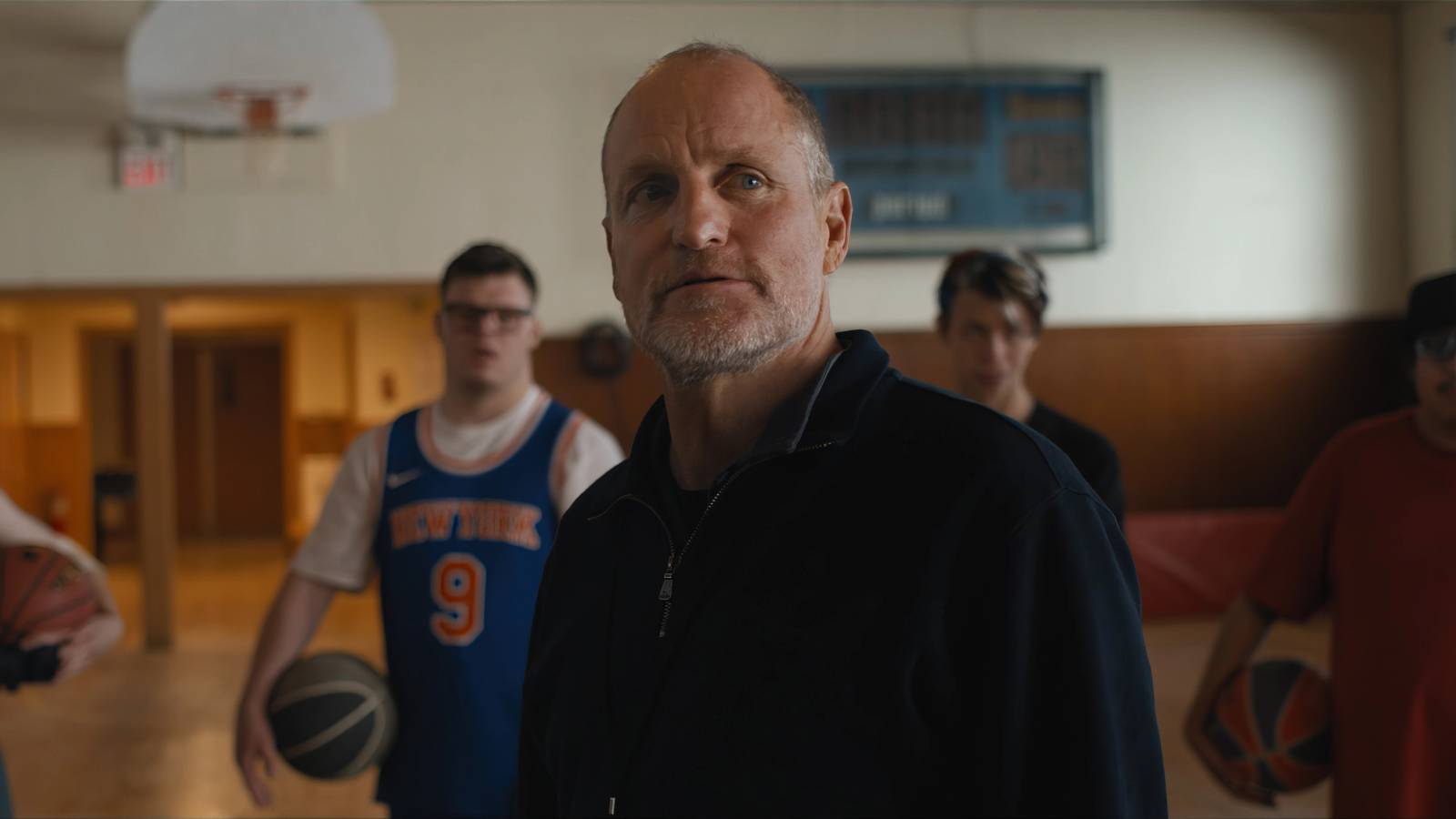Bobby Farelly’s been out of the feature game for almost ten years. After a lucrative 20-year career writing, directing, and producing together, brothers Bobby and Peter Farrelly split cinematic ways in 2014. They kept working together in TV, but where Bobby took a break, Peter doubled down, debuting a solo career with Green Book and amassing Oscars and jeers alike (although just jeers for his second, The Greatest Beer Run Ever). Now it’s Bobby’s turn, and unfortunately he is not amassing Oscars.
Champions opens on a spiraling Marcus Marakovich (Woody Harrelson)––local hothead drunk and soon-to-be-canned assistant coach of the NBA G-league Iowa Stallions––in the final seconds of a nailbiter. A brash, sickeningly self-assured disagreement on strategy with the head coach (Ernie Hudson) quickly turns into a physical altercation that loses Marcus his job, leads him to a DUI, and lands him in court. In place of a harsher sentence the judge graciously offers Markus the chance to coach a team with intellectual disabilities, all but winking at the camera with the explicit intent of teaching him a lesson. He begrudgingly accepts.
In the third entry of the WHBCU (Woody Harrelson Basketball Cinematic Universe), the charm of the ensemble he coaches––Benny (James Day Keith), Johnny (Kevin Iannucci), Cody (Ashton Gunning), Craig (Matthew Von Der Ahe), Arthur (Alex Hintz), and Showtime (Bradley Edens), to name a handful––is strong, and genuine enough at times to cut through the eager commerciality of the pop needle drops (Willie Nelson’s “Whiskey River” exempt) and creative bankruptcy of the template score that hopes you feel more than you think.
There’s a true sense of chemistry among the team (Harrelson included) and occasionally a fresh sense of humor at play, things the filmmakers could’ve leaned into with more confidence and maturity. Practices are the best part, each one a whirlwind of various comedic sensibilities being hurled around the gym in an affectionate display of camaraderie that usually makes a punchline out of Marcus’s reticence until it’s all but worn away. Even the more off-screen players get their jabs in, Darius (Joshua Felder) and Cosentino (Madison Tevlin) the king and queen of unexpected one-liners that sting Marcus into a place of sincere reflection.
But, more often than not, the contagious affection at its core reaches out only to be intercepted by the formulaically dull filmmaking that defines Champions: sterile, cinematography-free cinematography; stereotypes where characters should be; the aforementioned music issues; uninspired direction. Perhaps the most off-putting aspect is the approach to storytelling that spotlights the ease in lowest common denominators over the beauty in individuality, in differences.
There’s a creative and spiritual deficit to a film that means to humanize by way of unconsidered art. There’s also a sense of outdatedness to the film’s message (e.g. Johnny’s Knoxville’s The Ringer came out in 2005), which it doesn’t need in order to exist. The chief crime of Champions isn’t insensitivity––just the opposite, in fact––but an overbearing attempt to avoid such and, as a result, a total departure from depth. It’s prime evidence that kind, warm-hearted movies must be more than well-intentioned. They must be thoughtfully made, too.
One can tell plenty of thought was put into the cringey SEO desperation that wrought forced phrases like “hot girl summer.” But that’s a central tenet of the Farrelly brothers, who have worn a career-long desire to be a part of the monoculture on their sleeve. There’s a version of the film that feels engaging and well-considered. It pops its head out every once in a while (most notably in an FBI impersonation sequence led by a gut-busting Kaitlin Olson). But it can’t even stay above water in a shallow script. Despite its name, Champions rides the bench.
Champions is now in theaters.

